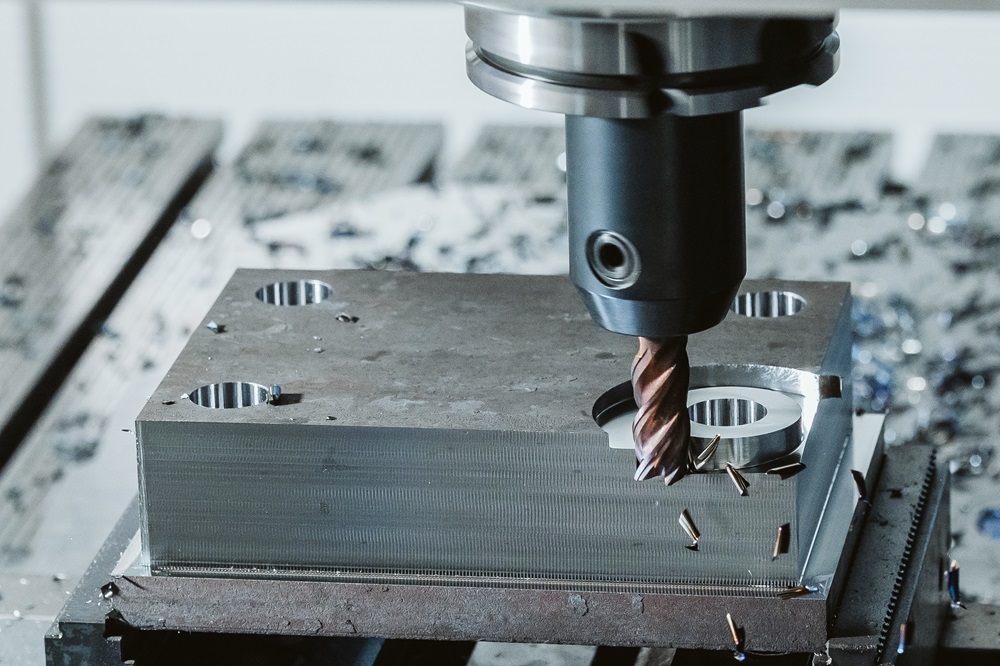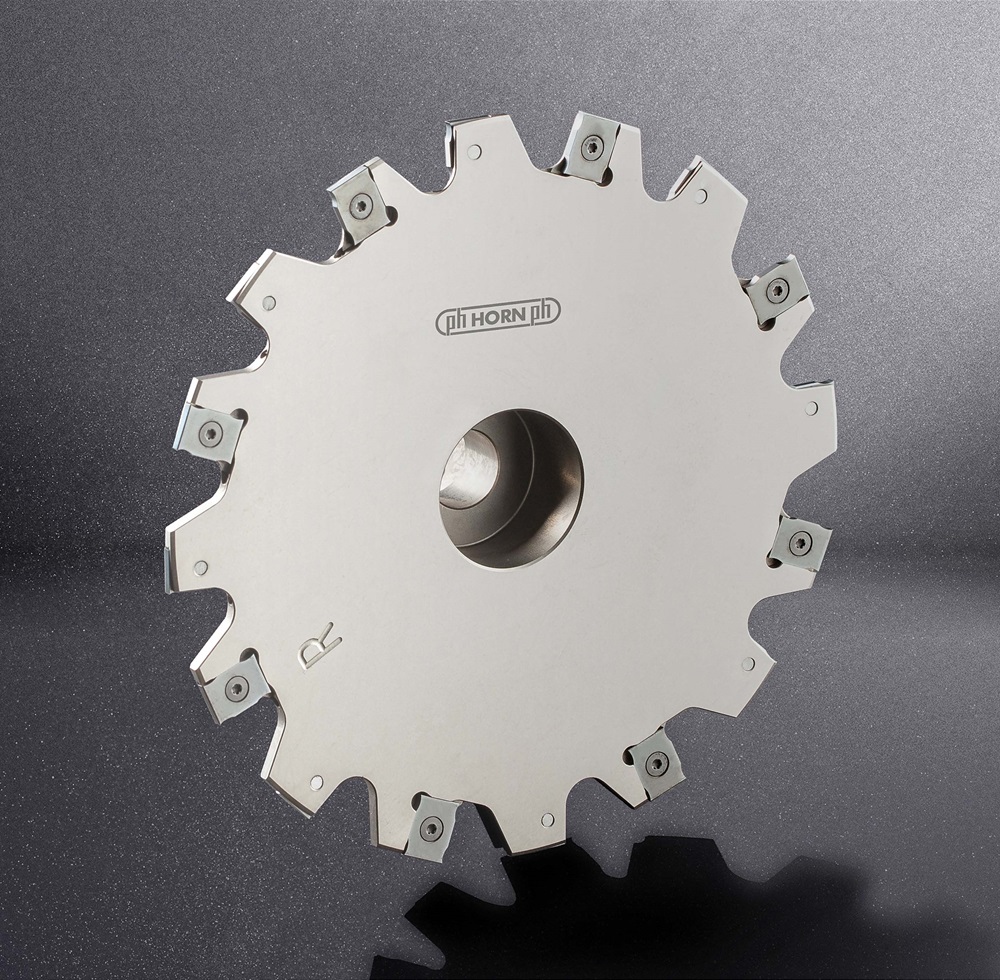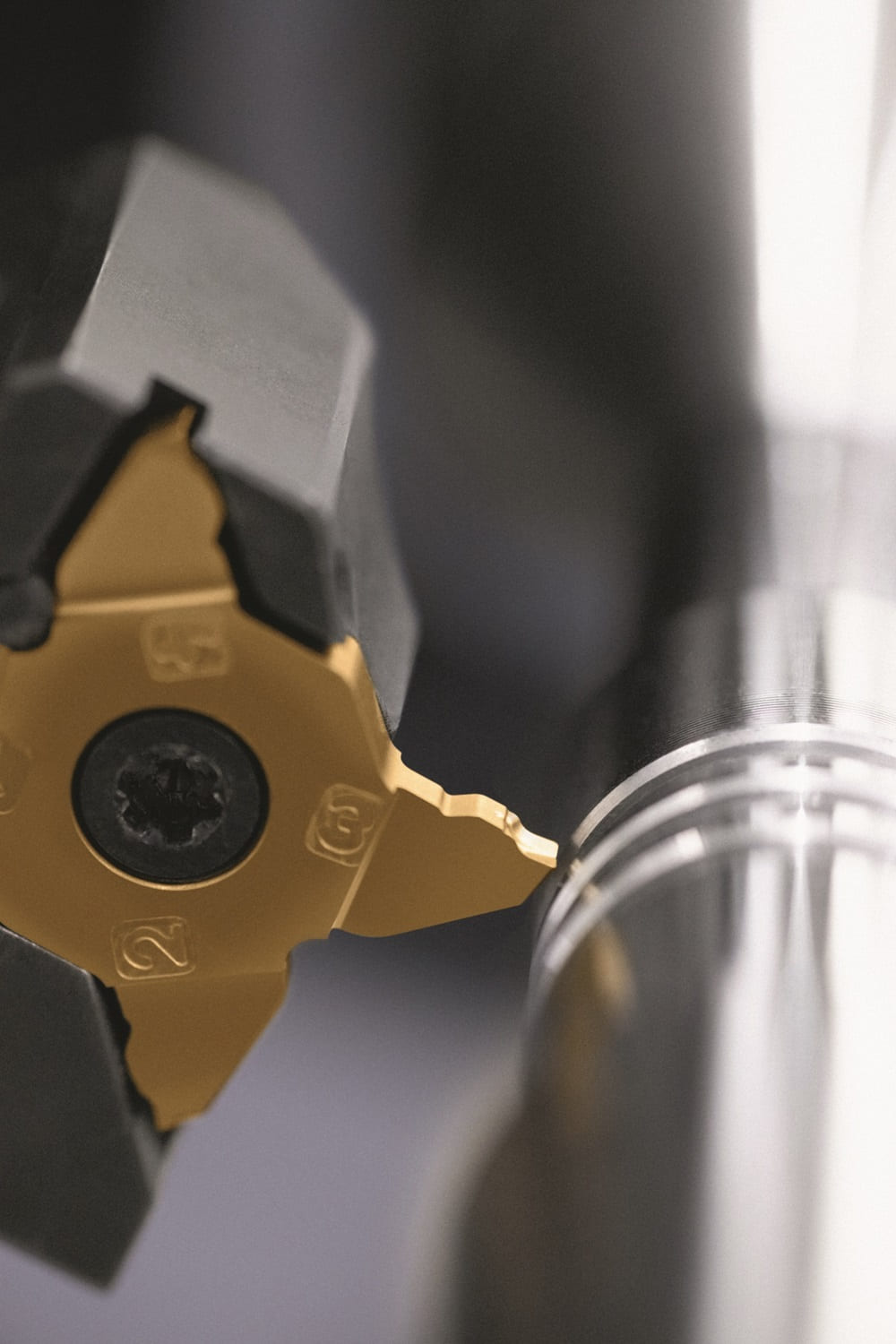Rainford Precision is adding to its cutting tool portfolio with the arrival of the CEHS end-mill series from Union Tool that the company says reduces chatter and improves precision and surface finish.
The new CEHS tungsten-carbide four-flute end mills are for manufacturers struggling to hit the ‘sweet spot’ with their high-end machining applications. Suitable for machining everything from carbon and alloy steels to pre-hardened steel, cast iron, copper, titanium and heat-resistant alloys, the CEHS series incorporates a 40° helix and a variable pitch design for both slot and standard milling. Furthermore, the new large-pocket design of the main flute enhances swarf evacuation and eliminates the re-cutting of chips to extend tool life and machining performance.
Union Tool’s CEHS series has a h4 shank diameter tolerance of +0/-0.004 mm. To enhance milling stability, the end mills feature a small relief surface that further promotes stability and prevents chatter, even when undertaking operations with long tool overhang and reduced machining stability.
A micro-grain carbide, UT coating technology and 16° tapered shank design enable the 6 mm diameter version to machine slots in unstable conditions with an increase in milling efficiency of 80% improvement when compared with conventional tools, reports Rainford Precision.
Capable of cutting at machining parameters of 5000 rpm and 900 mm/min feed with a feed per tooth of 0.045 mm at a depth of 6 mm, the CEHS range of end mills is available in diameters from 1 to 6 mm in 0.5 mm increments with additional diameters from 6 to 12 mm offered in 1 mm increments. Each diameter designation has three different lengths of cut from 1.5xD to 3xD.
More information www.rainfordprecision.com



















